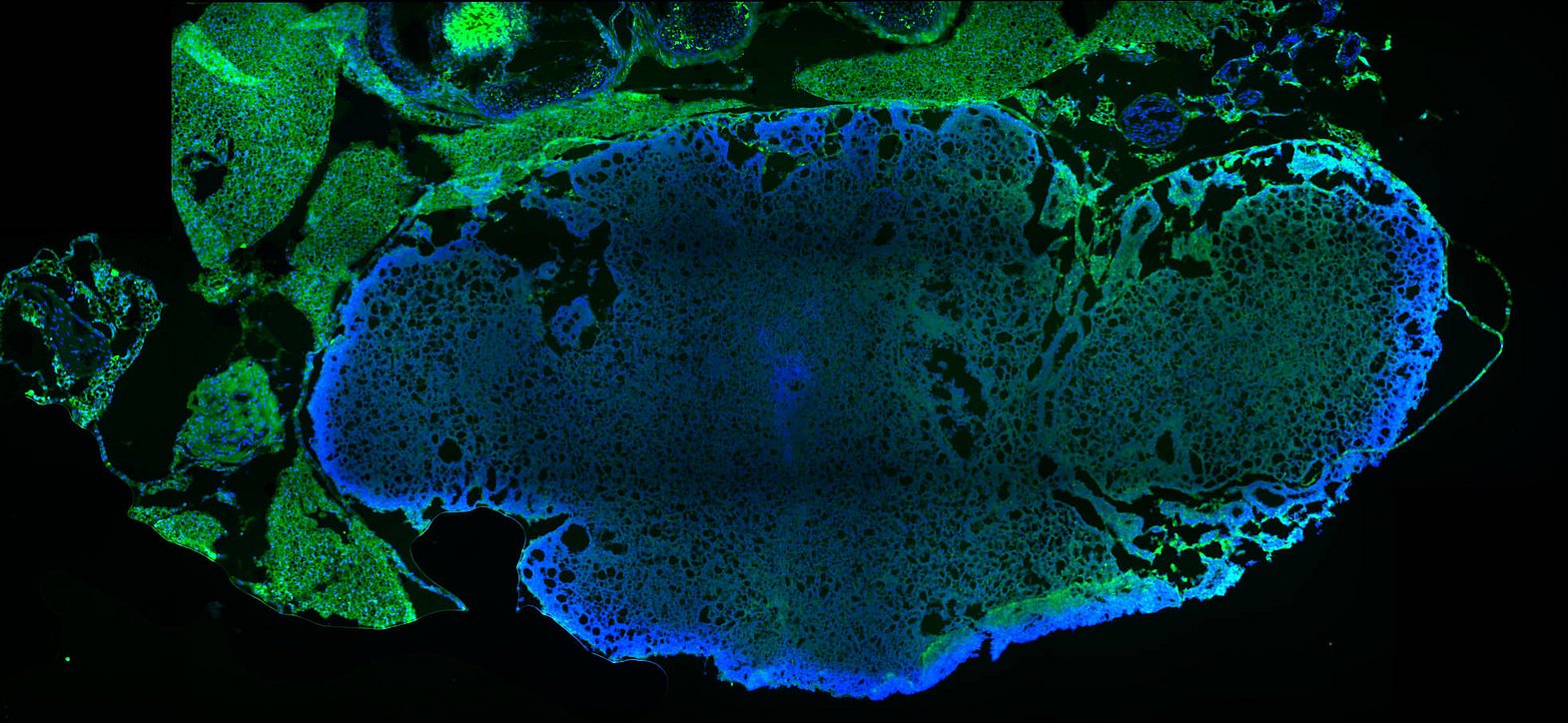Mechanismen der Lymphangiogenese in der beatmeten Lunge
Projekttitel: Mechanismen und therapeutisches Potenzial der pulmonalen Lymphangiogenese in einem Mausmodell beatmungsinduzierter Lungenverletzungen
Mechanismen der Lymphangiogenese in der beatmeten Lunge
Ein funktionierendes Lymphsystem ist entscheidend für die Auflösung von Ödemen sowie die Entfernung inflammatorischer Zytokine an Infektions- und Entzündungsherden. Der Abfluss der Lymphe über feine Gefäße zu den Lymphknoten und die dortige Antigenpräsentation für Immunzellen tragen wesentlich zur Aktivierung adaptiver Immunantworten bei.
Über diese Mechanismen fördern entzündungsbedingte lymphangiogene Reaktionen die Gewebereparatur und die Auflösung von Entzündungen. Im Gegensatz dazu sind chronische Entzündungszustände häufig mit einer gestörten Lymphangiogenese verbunden.
Unsere Forschung zielt darauf ab, das Lymphsystem genauer zu charakterisieren, die zugrunde liegenden Mechanismen der Lymphangiogenese zu untersuchen und deren Dynamik in einem Mausmodell der Lungenentzündung zu analysieren, die durch beatmungsbedingte Lungenverletzungen hervorgerufen wird.
Die Entschlüsselung lymphangiogener Reaktionen in diesem Kontext könnte bislang unbekannte Mechanismen der Lymphangiogenese und der Entzündungsauflösung aufdecken. Langfristig könnten diese Erkenntnisse die Entwicklung pharmakologischer Strategien zur Prävention und Therapie beatmungsinduzierter Lungenverletzungen und Lungenentzündungen unterstützen.
Funding:
- Deutsche Forschungsgemeinschaft
Collaboration:
- Dr. Mahdi Taher, Charité – Universitätsmedizin Berlin
- Prof. Dr. Dieter Chichung Lie, Institut für Anatomie, FAU Erlangen
Leitung
Prof. Dr. Roland C. E. Francis
Klinikdirektor
Telefon: 09131 85-33676
E-Mail: roland.francis(at)uk-erlangen.de
Ansprechpartner
Prof. Dr. Jan Adriaan Graw MHBA
Leitender Oberarzt - Forschung - W3 Professor Translationale Anästhesiologie





